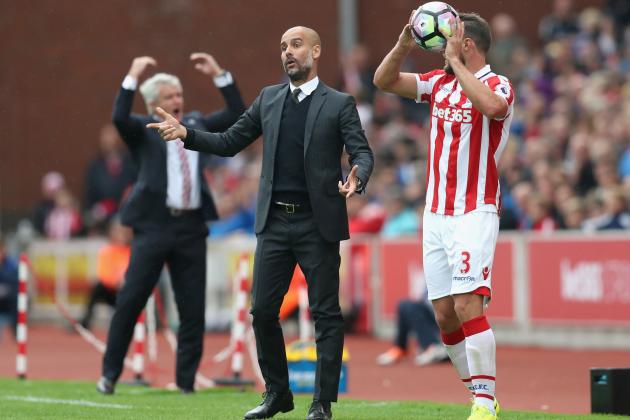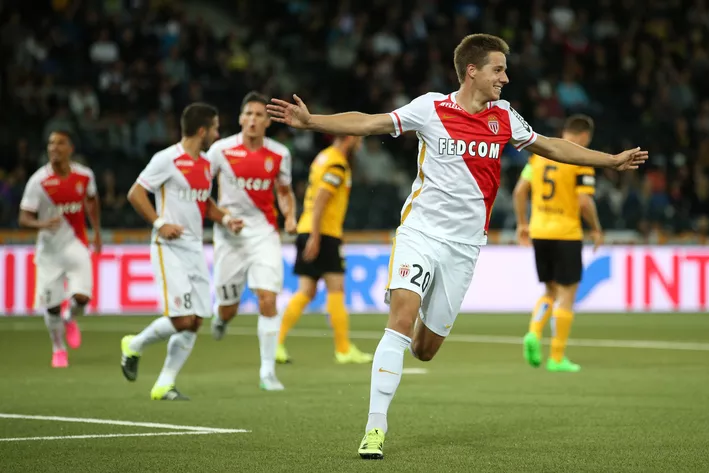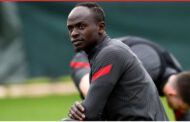Pep Guardiola will adapt his tactics to combat a particular opponent. He is flexible and prepared to move players into unusual roles if it means nullifying a key element of the opposition’s game.
However, there are certain principles he will not alter, and if players don’t show aptitude for what he wants, his ruthless streak allows him to discard them.
When he took over at Barcelona—his first top-flight job in management—he immediately got rid of Ronaldinho, Deco and Gianluca Zambrotta, three established stars, and 12 months later, he did the same with Samuel Eto’o.
In his eyes, those players were either bad for squad harmony, unable to play in the style he wanted or both. It was a brave approach, but one that ultimately paid dividends. He won three La Liga titles and two Champions Leagues in his four-year stint in charge at the Camp Nou and ensured that Barcelona side would go down in the annals of time as one of the best we’ve had the pleasure of seeing.
His core principles are clear. Possession is important. Players must be comfortable with the ball at their feet and able to pass it quickly and effectively. They must also be capable of receiving the ball in tight areas, with the ability to turn into space and find a pass. That allows his side to have the majority of possession and if the opponents do not have the ball, they cannot hurt you.
His Barcelona side were relentless in their desire to keep possession, shifting the ball at speed with one- and two-touch passing, denying the opposition the chance to get hold of it. It was tiring and frustrating for their opponents, and Guardiola’s team became the best club side in the world.

Michael Steele/Getty Images
All 11 players must be able to involve themselves in that side of the game, even the goalkeeper. Goalkeepers in Guardiola teams are auxiliary outfield players. Victor Valdes and Manuel Neuer were his not-so-secret weapons at Barcelona and Bayern Munich, acting as sweepers as well as being charged with keeping the ball out of the net.
He also demands intensity from his players. His fitness coach Lorenzo Buenaventura is known for his tough approach. Pre-season under Guardiola’s watch often sees double sessions, with one focusing on tactics and technique and the other designed to ensure players are ready for the physical demands of the season ahead.
When his team lose the ball, they must press high and hard, hunting in packs, in an attempt to recover possession as quickly as possible. There will be no coasters. Anyone deemed to be shirking their off-the-ball responsibilities is removed from the team.
That’s not to say every player has to be a tough-tackling, Roy Keane-type player. But every player must press and squeeze the opposition, reducing the space and time they have to create. You cannot allow your opponents time on the ball, otherwise you are simply handing them the initiative to hurt you.
Players need to be tactically and technically proficient, too. Guardiola wants versatility—players who can operate in a number of different roles. He may want to change a certain player’s position from game to game, or he may need to shift them during a match if the opposition are presenting unforeseen problems.
Take Fernandinho. He is perhaps one of the most tactically astute players in the Manchester City squad, and it’s therefore no surprise that Guardiola has singled him out for praise—the manager appears to have identified him as one of his most valuable assets.
“I think Fernandinho can play in 10 positions,” Guardiola said at one of his first City news conferences. “He has the quality to play wherever. He’s a quick, fast player, so intelligent, aggressive and strong in the air. He could play at centre back. He has the quality to create good build-up play. We think he can play there.”
It’s perhaps Ilkay Gundogan, of all Guardiola’s signings this summer, who represents the City boss’ style most accurately. Gundogan is a brilliant passer, both in terms of accuracy and ingenuity, and he works incredibly hard to recover possession. He can make subtle alterations to his position without fuss, and his fitness and professionalism are considered top class. It’s easy to see why Guardiola made him his main transfer target.
But which players in the City squad are incompatible with Guardiola’s ideas?
Wilfried Bony is perhaps the most obvious. Guardiola has described Bony as a “really nice guy,” but the Ivorian’s limitations are clear. He lacks movement and subtlety, and since his move to City, he hasn’t scored anywhere near enough goals—the striker has netted eight times in 43 appearances for City, according to WhoScored.com. He conflicts with Guardiola’s sensibilities and will surely be on the lookout for a move after being frozen out under the Catalan so far.
West Ham United manager Slaven Bilic has made his interest known, saying after this weekend’s win over Bournemouth: “I’m going to speak to the chairman and our head of recruitment on Monday morning and if we can get one [a striker], it has to be a good one. Bony is a good player—but we will speak on Monday.”
Joe Hart looks set to be the highest-profile casualty of Guardiola’s approach.
Hart, 29, is an outstanding goalkeeper in many regards. Few are as good at narrowing the angle and spreading themselves at the feet of a striker, and his shot-stopping is also, at times, remarkable. His save from Dimitri Payet’s free-kick last season and Federico Fernandez’s header the previous campaign are fine examples of his ability.
Yet with his feet, there has always been an issue. To those brought up and influenced by English football, ability in possession may not seem like an issue for a ‘keeper at all, but Guardiola believes wholeheartedly that goalkeepers must be able to involve themselves in the team’s passing.
Hart is out of the side, and there seems little he can do to alter the situation.

Yaya Toure’s lack of intensity is the reason he is struggling to get a game. He is technically superb and understands the intricacies of various midfield roles—but he doesn’t work hard enough without the ball to earn a spot in Guardiola’s XI.
Frenchman Samir Nasri, who returned from his summer breakoverweight, is in a similar situation. His work rate during his time at City has often been questioned, but whereas other managers have put up with it, Guardiola looks unlikely to.
Eliaquim Mangala has the opposite problem. His attitude and desire are fine, but his lack of poise in possession means Guardiola has written him off. Ultimately, the new manager wants City passing the ball quickly across his back line. It’s unlikely Mangala will feel comfortable in such a system.
Guardiola’s approach is unbending. He has a clear set of principles, honed in Barcelona from being a young boy, that he will not move away from. Why would he? His success has been unprecedented, and he is considered the best manager in the game.
Many players excel under his guidance—but some do not fit.
Rob Pollard is Bleacher Report’s lead Manchester City correspondent and follows the club from a Manchester base. All quotes were obtained firsthand unless otherwise noted. Follow him on Twitter @RobPollard_














